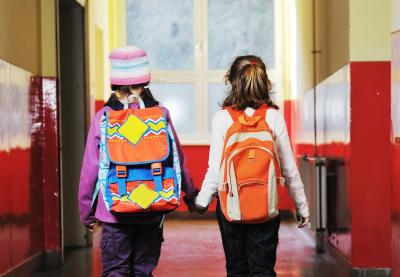The Minnesota Child Protection League (MNCPL) may have a benign-sounding name. But this consistently anti-LGBT organization has some aggressively worded homework for its newsletter subscribers: Stop the "extremist 'social justice' agenda" from infiltrating our schools.
The MNCPL purports to "protect children from exploitation, indoctrination and violence." In reality, the organization opposes any proposal to protect LGBT and Muslim children from discrimination or bullying, and it does so with misinformation and malice. Transphobic and homophobic comments by MNCPL's Barb Anderson over the years underscore that mission.
Their newest request is part of an ominous email issued in response to a mandate requiring Minnesota teachers to receive cultural competency training before earning their licenses. The MNCPL takes umbrage with the Professional Educators Licensure and Standards Board asking educators to learn about "racial, cultural, and socioeconomic groups; American Indian students; implicit bias; systemic racism; gender identity; including transgender students; sexual orientation; language diversity; and individuals with disabilities."
To the MNCPL, this means Minnesota teachers will be indoctrinated, forced to embrace ideas like respect for LGBT identities, gender-neutral pronouns and Islam. To the MNCPL, this means a violation of freedom of thought. This means intimidating teachers and students into an extremist ideology. So they're requesting action, asking their followers to voice opposition to the mandate and to encourage educators to do the same.
Anderson's fear of a "radical homosexual agenda" and her claims that Gay-Straight Alliances "affirm sexual disorders," are, of course, ridiculous on their face. But the MNCPL's tactics should be taken seriously.
They come to our attention at a time when groups like the MNCPL are emboldened. They've been vocal. They've pressured school and community leaders to abandon inclusive practices. They've swayed lawmakers in their direction. Their collective voices are often more present and more pressing than the voices of those calling for equitable school practices.
Their ability to shout down others is even more pronounced when those who oppose them don't have the privilege of a platform and willing listeners. Marginalized voices—in Native, African-American and immigrant communities across the nation—have been ignored by stakeholders on both sides of this debate for far too long.
To make things worse, educators who do support inclusive practices often feel like they must walk on eggshells. Extremists have forced their ideologies so far from the margins that a commitment to promote a culture of acceptance for all students—to provide a space in which all students can feel safe and learn—now seems radical.
We have written about what educators can do when they face outside antagonism. But it's important to remain vigilant. Every time we meet face to face with teachers, we hear about the pushback faced by those who teach social justice, by those who make sure all students feel represented in their curricula and their classrooms.
To these—and all—educators, we offer a reminder: This work isn't radical. Culturally relevant and responsive teaching aren't political choices; they're proven, effective practices for educating young people. Social justice teaching is an exercise in collaboration, not indoctrination. It's about critical thinking skills. It's about empathy. It's our best effort to ready our children to work with one another, to share an open exchange of ideals, to participate in a diverse democracy and to better a society that has historically disempowered and silenced far too many people.
If educators are intimidated into abandoning teaching methods that facilitate success for all students; if administrators are cowed by an effort to recast pedagogical best practices as partisan propaganda; if schools give up on their promise to level the playing field—then we're failing not only our kids but all Americans who depend on an educated populace.
For too many, the narrative has shifted toward "agendas" and "indoctrination," toward paranoia and away from reality. As educators, we must step in. We need an equal and opposite response.
So extend a request to non-educators in your networks and communities: Make yourself heard in the discussion surrounding anti-bias education. Applaud schools and districts when they implement inclusive practices, and applaud loudly. In districts where this work is needed, champion it. Call on school leaders, community leaders and lawmakers to enact policies that protect marginalized students and protect teachers who are doing their job.
Let it be known that there's a demand—and a need—for anti-bias education.
This work should not have to be done behind closed doors. It is neither covert nor duplicitous. It is not shameful.
As we strive to educate for a diverse democracy in a climate of divisiveness, we know this more than ever: It's necessary.
And it's OK for us to act like it.
